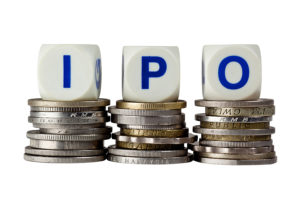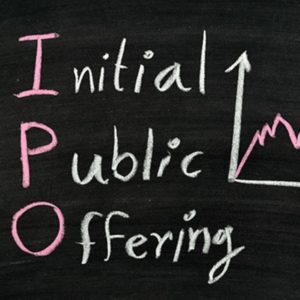In August I received an invitation by mail – complete with an offering prospectus and stock order sheet – to subscribe for shares in the initial public offering (IPO) of Ponce de Leon Bank, a Bronx, NY-based savings institution where I have a CD.
 I’ll admit upfront I barely know anything about Ponce de Leon Bank. I walked into a bank branch in northern Manhattan in 2002, specifically hoping that one day I’d be invited to participate in their IPO. My plan worked, a mere 15 years later.
I’ll admit upfront I barely know anything about Ponce de Leon Bank. I walked into a bank branch in northern Manhattan in 2002, specifically hoping that one day I’d be invited to participate in their IPO. My plan worked, a mere 15 years later.
In September I put in my order for PDLB at $10 per share.
The stock opened at $14.90 on October 2nd. Go me!
I don’t want you to think I normally get invited to participate in IPOs, which are generally reserved for institutions and extremely high net-worth people. Like, normally if you don’t have $100 million with a brokerage firm, it’s not worth asking about getting into the offering. The key to participating in this IPO is that I am a depositor, and Ponce de Leon Bank was a “mutual bank.”
Of the estimated 5,787 FDIC-insured banks in the United States an estimated 577 of them are mutually-owned banks , which means they were not founded by private or public investors, but rather by depositors.
That means that when the bank management of a mutually-owned bank decides to go public – as quite a few banks decide to do each decade – the first people in line with rights to buy shares are its depositors. Like me. Also interestingly, although I opened just a $1,000 CD at Ponce de Leon Bank back in 2002, the offering prospectus gave me (and every depositor) the right to order up to $300,000 worth of shares. I didn’t, but the cool possibility is that I might have. A boy can dream, right?
Normally I’m opposed to even attempting to participate in IPOs, since the information-disadvantage between buyer and seller is too great. What I mean by that is that when startup owners and private equity owners of companies decide to sell shares in an IPO, they generally know far more about the business than do the purchasers of shares. Since the insiders are selling – the very definition of an IPO – it seems illogical to be overly excited as an outsider to buy. Even Warren Buffett agrees with me. Ok, more like I agree with him, when he wrote that “It’s almost a mathematical impossibility to imagine that, out of the thousands of things for sale on a given day, the most attractively priced is the one being sold by a knowledgeable seller (company insiders) to a less knowledgeable buyer (investors.)
 But at least in this respect mutual bank IPOs are different. There is no “insider-owner” who decides to sell shares, since the owners are the depositors of the bank. The management of the bank – the board, president and key executives – is a kind of insider-group, but they also generally line up to purchase shares in a mutual bank IPO. They are certainly not selling. They can’t, since they are not owners.
But at least in this respect mutual bank IPOs are different. There is no “insider-owner” who decides to sell shares, since the owners are the depositors of the bank. The management of the bank – the board, president and key executives – is a kind of insider-group, but they also generally line up to purchase shares in a mutual bank IPO. They are certainly not selling. They can’t, since they are not owners.
As always, investing involves risk, and buying shares in a bank I don’t know anything about isn’t something I’d normally recommend. And yet, mutual bank IPOs that I’ve participated in since 2002 have a positive track record overall.
Third Federal Savings and Loan (renamed TFS Financial Corporation, TSFL) popped from $10 to 11.8 on its the first day in April 2007.
North East Community Bank (renamed Northeast Community Bancorp, NECB) traded to 11.25 on the first day in July 2006.
Atlas Bank, purchased by Kearny Financial (KRNY) ended its offering on the first day 10.9 in 2015.
I managed to lose money on Sound Community Bank (SNFL) in January 2008 and Cape Bank of New Jersey (CBNJ) in March 2008. I explain those anomalies as “everything risky lost money in 2008.” Those IPOs both opened below $10 per share, and I sold shares in both at a loss.
There have been a half-dozen others I’ve participated in since 2002, all up something after the IPO except for those two in 2008.
As with all investing opportunities that diverge from my 6-word investing mantra – Buy equity index funds! Never sell! – I’m not saying you should necessarily do this. There’s a real hassle factor involved in this mutual bank IPO hack. Bank statements and privacy notices fill up my post office box throughout the year. My accountant thinks I’m bizarre, collecting and reporting tiny amounts of interest from numerous banks. If I keeled over and died tomorrow, would my wife be willing or able to track down the 31 different CDs and savings accounts I have at mutual banks scattered around the country?
For the record, I own none of these shares now, nor do I own any individual stocks in my portfolio for that matter. With mutual bank IPOs, I generally sell at the earliest possible moment because, like I said, I don’t know anything about these banks.
Please see related posts:
How To Invest – Keep It Simple
Post read (836) times.
